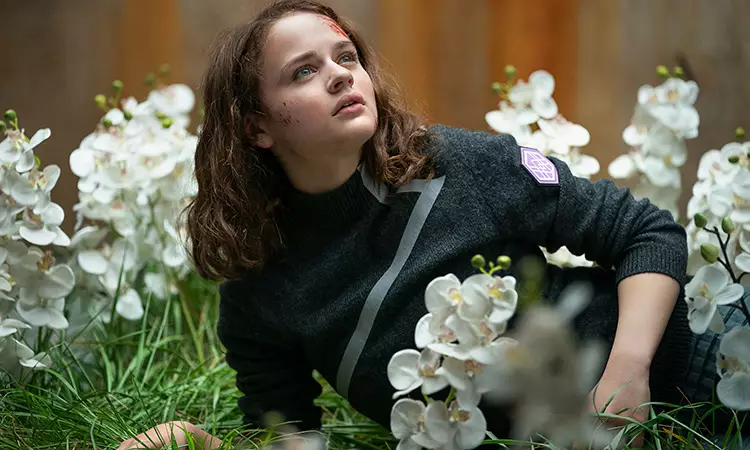Scott Westerfeld’s ‘Uglies’ has become a hallmark of young adult literature since its inception in 2005. This gripping series, a blend of dystopian themes and pertinent social commentary, has captivated readers young and old with its exploration of beauty, identity, and conformity. The story follows Tally Youngblood, a teenager in a future world where individuals undergo a controversial surgery upon turning sixteen to become “Pretty.” In a society obsessed with appearance, Tally’s journey challenges the very fabric of beauty standards, making it a compelling narrative ripe for adaptation. Netflix’s upcoming film aims to bring this important message and electrifying plot to a broader audience, featuring talented stars Joey King and Laverne Cox in pivotal roles.
At its core, ‘Uglies’ presents a thought-provoking premise: a society where external beauty is surgically enhanced at the expense of individual identity. Tally Youngblood is initially portrayed as a typical teen, eagerly anticipating her transformation into a “Pretty.” However, everything changes when her friend, unyielding in the face of societal pressure, escapes to the enigmatic ‘Smoke’—a refuge for those resisting the superficial allure of surgery. Tally’s subsequent journey unravels layers of societal expectation and personal realization, criticizing how physical standards can infringe on personal autonomy and self-acceptance.
The characters in ‘Uglies’ are not just vessels for social critique but are multidimensional individuals whose experiences reflect the broader human journey towards self-discovery. As Tally confronts her ideals and the reality of her world, viewers are invited to reflect on their relationships with beauty and conformity. The film adaptation holds the responsibility of maintaining this intricate character development while translating it to a visual medium.
Joey King’s involvement in the project extends beyond mere participation; she has a profound connection to the source material. First introduced to ‘Uglies’ during her youth, King was mesmerized by Westerfeld’s world. Her ambition to portray Tally is not only indicative of her admiration but also highlights a shared vision. As an executive producer, King is poised to advocate for the integrity of the story and its themes, ensuring that the adaptation resonates with fans of the novel while appealing to newcomers.
Her transformation from a young fan to a producer in her own right demonstrates a significant commitment to the project. King’s passion reflects the film’s potential to capture the essence of ‘Uglies’ while also presenting a fresh perspective that contemporary audiences can relate to, especially in an era increasingly aware of societal standards of beauty and their implications.
Direction and Vision: McG at the Helm
Director McG brings his diverse experience in filmmaking to ‘Uglies,’ aiming to craft a narrative that resonates with modern sensibilities. Known for his work in various action-packed and character-driven stories, McG is intended to create a visual landscape that is both engaging and thought-provoking. His comments regarding the film as a commentary on contemporary beauty standards underline a vision that goes beyond mere entertainment.
McG articulates a need for introspection and authenticity: “It’s a moment to say, ‘Take a deep breath, work on your inner game… and accept yourself for who you are.'” This philosophy affirms the thematic foundation of Westerfeld’s work while presenting an opportunity to influence young audiences positively.
Westerfeld’s Involvement and Commitment to Authenticity
Westerfeld’s active participation in the adaptation process demonstrates a commitment to preserving the narrative’s spirit. His insights during filming, including thoughtful discussions with McG about key elements, ensure that the nuances of the original text are represented authentically. This collaboration is vital, as it merges the author’s vision with the director’s artistic direction, creating a cohesive and engaging film experience.
Furthermore, Westerfeld’s intention for ‘Uglies’ to be a fun, culturally reflective story rather than merely a representation of dystopian struggles adds layers to the narrative. His desire for embodying joyous rebellion against societal norms reinforces the movie’s potential to inspire creativity and vital discourse among viewers.
As Netflix prepares to unveil ‘Uglies’ to the world, expectations run high. The combination of a compelling narrative, the passion of its leading stars, a dedicated director, and the original author’s collaboration suggests a promising adaptation that honors its literary roots. With its prevailing themes of identity, self-acceptance, and societal critique, ‘Uglies’ is set to resonate in today’s cultural landscape. As audiences anticipate this film’s release, it promises to reignite conversations about beauty standards and personal authenticity, proving that even within a meticulously curated world, the true essence of beauty lies within.

